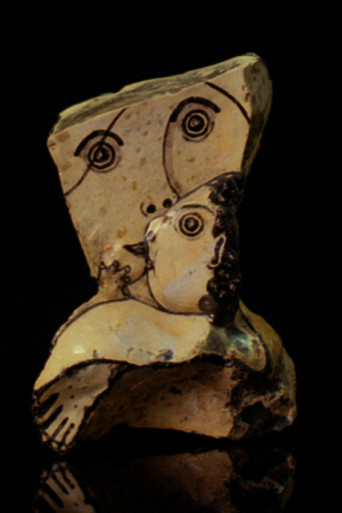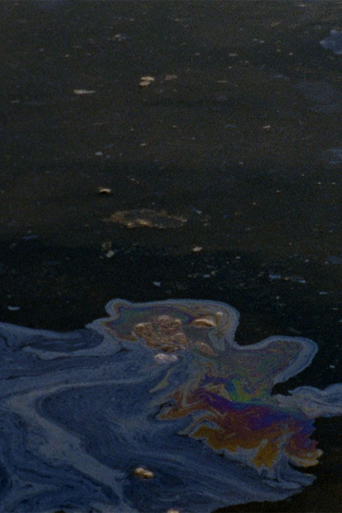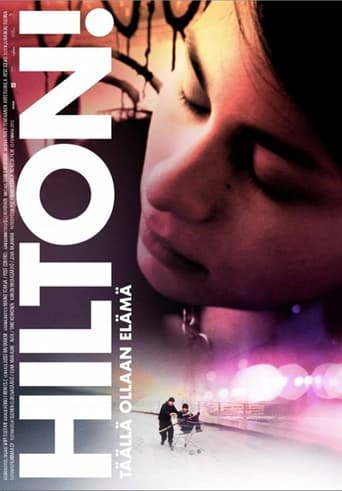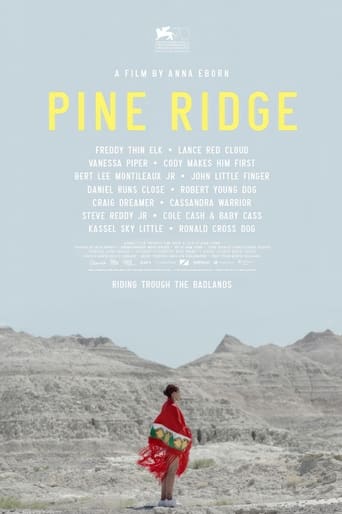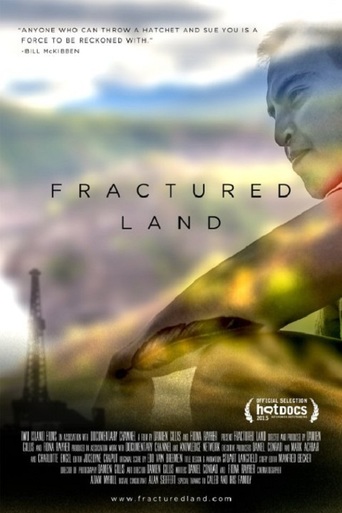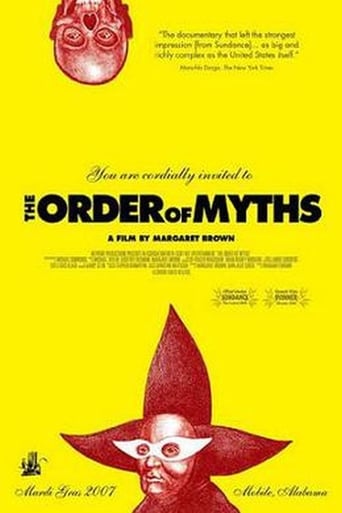
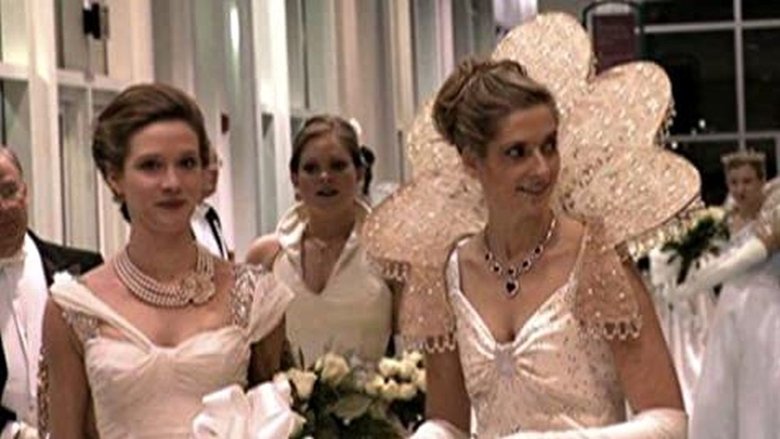
The Order of Myths (2008)
In 2007 Mobile, Alabama, Mardi Gras is celebrated... and complicated. Following a cast of characters, parades, and parties across an enduring color line, we see that beneath the surface of pageantry lies something else altogether.
Watch Trailer
Cast
Similar titles

Reviews
Truly Dreadful Film
Absolutely brilliant
Let me be very fair here, this is not the best movie in my opinion. But, this movie is fun, it has purpose and is very enjoyable to watch.
One of the worst ways to make a cult movie is to set out to make a cult movie.
I had no idea that Mobile, Alabama had the oldest Mardi Gras celebration in the nation. Well before New Orleans was even founded, Mobile was already doing their best to live it up before Lent. And, while it's not as big as the one in New Orleans, it is a big to-do--with incredibly lavish costumes, floats and pageantry. However, it also is a giant anachronism--with TWO celebrations--one that is all-black and one that is all-white! In the 21st century, this seems very weird--and highly reminiscent of the recent film "The Help"! In many ways, it's a self-imposed continuation of the old 'separate but equal' notion.This film is in some ways quite sad. Seeing the two events being so distinctly separate is a sad reminder that you can't legislate decency--and a lot of folks STILL are hanging on to their racist roots. However, and this came late in the show, there are FINALLY some signs that this situation is changing a bit. See the film and see what I mean. The show is quite good and I like how they simply let everyone talk without commentary--to let the viewer see it and draw their own conclusions. Well worth seeing and I hope folks outside the USA understand that this is NOT indicative of country--just one small backward portion that is finally starting to move into the 21st century.By the way, throughout the film many people talk about tradition and reconnecting with their history yet NEVER mention slavery. It's obviously the elephant sitting in the room.
In itself, this is not a bad film. It offers, what I'm sure many white people will feel, a completely unbiased view on the segregation in Mobile, Alabama. I beg to differ. What is perhaps the films greatest strength and its greatest weakness, is that the maker comes from a 'prominent' white family (read: most likely deeply conservative) with still a lot of economic power (read: used to have many slaves in the past). This is why I'm suspicious of the films' unbiasedness.However, there are ominous indicators that the maker is really trying to be as open-minded of her background. Of this, the mentioning of the trees is the most poignant. A VIP white man, is explaining that they really like trees, because of tradition and so on. He seems to be completely unaware that trees in the Deep South symbolize lynchings of blacks. It's rather insensitive. It's like stressing the fact to Jews that Germans really like to cook their food on gas. In itself there's nothing wrong with that statement, but you catch my drift. The fact that the makers choose to put this in, seems to say that she's not afraid to mention the darker parts of her past. Or, the more depressing explanation would be that the maker herself is not aware of the fact that trees and the South stand for lynchings.Also, the similarity between all the Mardi Gras Orders and the KKK is high. It doesn't require a lot of imagination that the KKK took symbols and rituals from these Orders. And it wouldn't surprise me to learn that many of these Orders had been highly instrumental in oppressing the African American people.The end of the film is even more sinister. It is revealed that the grandfatherly man who is interviewed throughout the film is in fact the grandfather of the filmmaker. His last line is: "For what I am about to say, you have to stop recording" And indeed, the credits start rolling at that point. Now, in any other film this would have seemed a triumph of respect of privacy over the present day omnipresent eye of the camera. But in this case I imagined that he would tell her all sorts of horrible stuff that the Order of Myths used to do.In closing, I am reasonably sure that the filmmaker was trying for a balanced view and she might have achieved that, within her capabilities. Insofar as anyone can be impartial, she might have come closest. She seems to be best embodied by the Prodigal Liberal daughter, who returns to embrace her deeply conservative "heritage".However, it's ultimately a quite depressing film and subject, since all the white people are a.) insisting that they don't wanna change anything and b. are saying that black people WANT to be segregated themselves. We never hear the black people say that, actually. And c.) the black people don't seem very confident in their ability to change things, and seemed to have completely settled in their subservient role.Definitely a case of "Even Obama can not", in the sense that even an Obama-presidency won't change this in any, any way.
If you think racial segregation is a thing of the past in the good 'ole U.S. of A, "The Order of Myths" should disabuse you of that notion right quick.It's a little known fact that the Mardi Gras in Mobile, Alabama is the oldest such celebration on American soil, predating the one in New Orleans by a number of years (some date it to as far back as 1699). Of far more interest and note is that, to this very day, the Mobile Mardi Gras is presided over by a pair of kings and queens - one white, the other black - with the balls and parades largely segregated along racial lines as well. Margaret Brown's fascinating and eye-opening documentary focuses on the history of the event, along with the intense behind-the-scenes preparations for the celebration in 2007. Brown interviews the respective kings and queens, as well as many of the designers and planners responsible for pulling the event off year after year. Brown also chronicles the many "mystical" organizations who donate money and manpower to the cause (the oldest being The Order of Myths, from which the movie derives its title).Brown has opted not to use narration in her film, preferring to let the people she's interviewing speak for themselves, some articulately, some seemingly unaware of how exactly it is they are coming across - or perhaps they do and just don't care. Yet, no matter how desperately we may want to concentrate solely on the pomp and spectacle of the occasion or to join in the celebration, the images of rooms full of white people and rooms full of black people can't help but color our perception and diminish our enjoyment of the carnival as a whole.Still, it would be easy, I suppose, for outsiders to feel smugly superior to the people on screen, not only for their racist and, in some cases, sexist attitudes, but for their allegiance to traditions that may strike many of us as hopelessly outdated and silly. But Brown avoids turning her movie into an excuse for Southern-bashing and post-Bellum condescension by trying to honestly examine the roots and heritage of the community she's chronicling, not excluding the ugly side as well - the slave trade, the lynchings (including one as recently as 1981), the historic influence of the KKK.So, based on this film, can we conclude that present-day Mobile is a hotbed of racists and bigots? Well, it does have an African-American mayor, and there does appear to have been some small movement towards integrating the festivities in recent years.But in this post-Obama era, it might be incumbent on the fine folk of Mobile, in this one respect at least, to make a little effort to join the rest of us here in the 21st Century.A must-see film.
Writer/director Margaret Brown gives an excellent picture of the Mardi Gras traditions in Mobile, Alabama. Along the way she also gives a very good picture of black/white relations in the South even to this day.Most people think of New Orleans when they hear Mardi Gras, but the fact is that Mobile's traditions date to before New Orleans was a city. Mardi Gras is still mostly a Southern tradition, even though it has spread to Texas, San Diego and St. Louis. It's rich history came over from Europe in the 18th Century to Mobile, New Orleans, and Biloxi, Mississippi, where I am familiar with it, having lived there for a few years.Make no mistake, you can't just walk into the white organizations, even if you are white. You have to have familial connections back to the origins of the city. It is a closed society made up of a lot of former slave owners. Brown weaves the story of slaves into her story of the city and the Mardi Gras traditions.It was an excellent peek into some of the traditions of the organizations, both black and white, and of the Mobile society.
